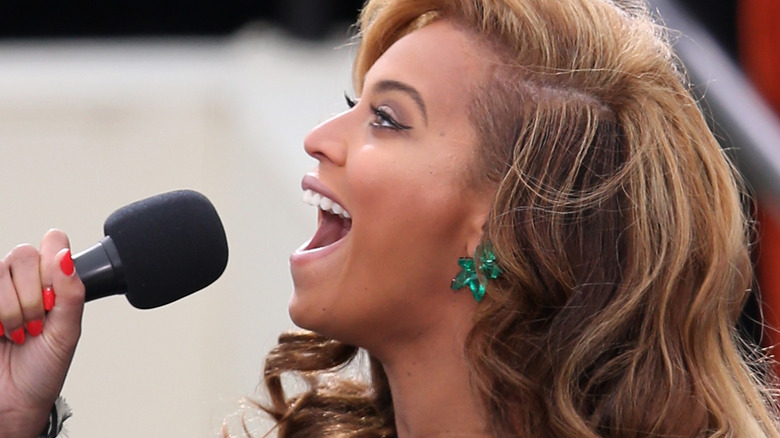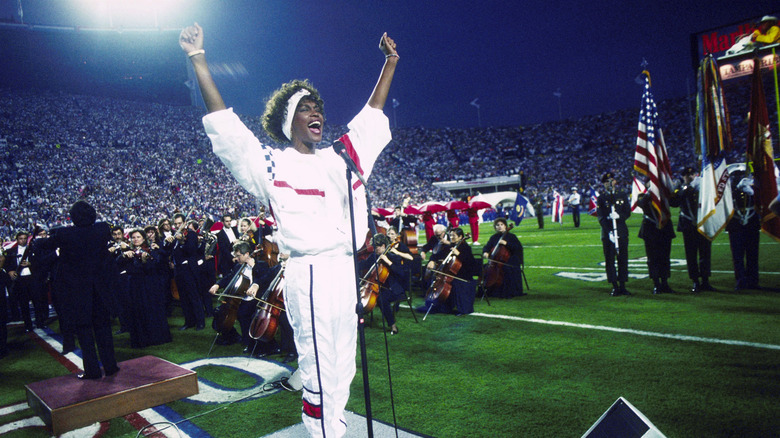Here's Why You Always Hear The National Anthem At Sporting Events
There are lots of typical facets of American life that don't involve singing the national anthem. No one is singing "The Star-Spangled Banner" to start the Macy's Thanksgiving Day Parade, or before watching a Marvel movie, or to kick off a President's Day mattress sale. But reliably, before many sporting events, a popstar gets out on the field to belt out "AND THE ROCKET'S RED GLARE." Why?
Fitting for such a battle-themed national anthem (the song was inspired by the War of 1812), the explanation is tied to America's long history of military conflict. The first use of the song during a sporting event was in 1862, during the Civil War and long before the song was America's national anthem, according to USA Today. But the song's use in games was popularized during World War I, in the seventh inning stretch of the first game of the 1918 World Series between the Red Sox and the Chicago Cubs, per Mental Floss.
"War without death"
There was such a positive reaction to using the song during the event that the Sox and Cubs owners played the song for the remainder of the series, according to Mental Floss. But even after "The Star-Spangled Banner" was made the national anthem in 1931, the song was only used for special occasions, including holidays, Opening Day, and the World Series.
The anthem only entered regular use before baseball games during World War II, especially as audio technology advanced to the point where the song could be projected without a band present. The American public became wild about the national anthem, projecting it before absolutely everything: live theater, movies, even operas, per USA Today.
Today, the practice is mostly kept to sporting events (and thank God — imagine having to stand up with your hand over your heart before watching a Fast & Furious movie). Perhaps that's because there is something warlike about sports. "Sports are a kind of bloodless warfare," said anthem historian Marc Ferris to USA Today, "a sort of war without death."

